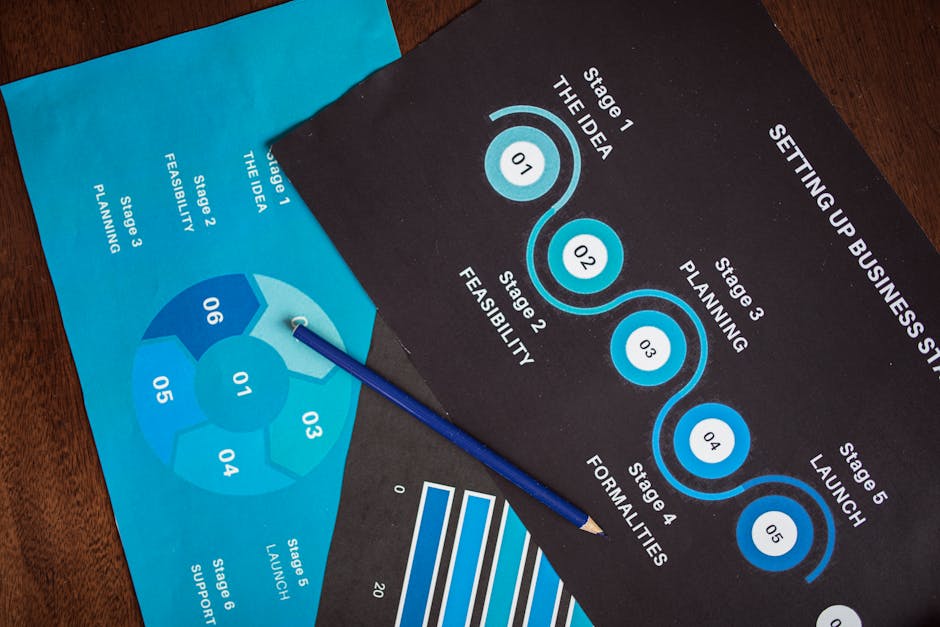I’ve seen too many people lose money chasing promises that were never real to begin with.
You’re probably tired of the noise. Every corner of the internet has someone selling you the next big investment hack that’ll make you rich by next Tuesday. Most of it is garbage.
Here’s the truth: building real wealth takes time and it requires a framework you can actually trust. Not some flashy system that works until it doesn’t.
I’ve spent years watching market cycles and studying what actually creates value. Not what sounds good in a sales pitch. What works when the market turns and everyone else is panicking.
This article gives you a clear approach to growing your capital without the deceptive tactics. Whether you’re running a business and reinvesting profits or managing your own portfolio, these principles apply.
investment hacks discommercified focuses on strategies that are transparent and proven. No unrealistic returns. No hidden risks buried in fine print.
You’ll learn how to grow your investments safely and ethically. The kind of approach that builds sustainable wealth instead of leaving you wondering where your money went.
No hype. No schemes. Just what actually works over the long term.
The Foundation: Establishing Your Ethical Investment Compass
Most people think safe investing means spreading money across index funds and calling it a day.
I disagree.
Real safety comes from knowing exactly what you’re putting money into. Not just the ticker symbol. I mean understanding the business model, the revenue streams, the actual product.
Here in Lexington, I’ve watched too many people get burned chasing the next big thing. They hear about a hot stock at a coffee shop on Main Street and jump in without asking basic questions.
True safety is about transparency. If you can’t explain how a company makes money in two sentences, you probably shouldn’t own it.
Let me be clear about something else. Value creation matters more than price movement.
Does the company improve a product people actually use? Does it solve a problem that costs customers real money? That’s what I look for.
Speculation is different. It’s betting on hype cycles and hoping you can sell to someone else before the music stops. Some investors say that’s just part of the game. That everyone’s doing it.
But that’s a zero-sum mindset. Someone has to lose for you to win.
I’d rather focus on businesses that create win-win scenarios. The company grows. Customers benefit. You profit. Nobody gets left holding the bag in a pump-and-dump scheme.
Here’s what I want you to do before you invest another dollar.
Write down your principles. What kind of companies align with your values? What’s your actual risk tolerance (not what you think it should be)?
Set long-term goals. Three years minimum. Five is better.
This is what we call investment hacks discommercified. Stripping away the complexity and getting back to basics that actually work.
Think of it as your personal investment charter. Mine sits in a notebook on my desk. I check it before making any significant move.
It keeps me honest when FOMO kicks in.
Strategy 1: Compounding Growth Through Smart Reinvestment
Most business owners pull profits out the moment they hit their account.
I did the same thing when I started. Made $5,000 in a month and immediately thought about what I could buy with it.
Here’s what changed everything for me.
I started treating my business like an investment account. Every dollar I made became a dollar I could reinvest to make more dollars.
That’s compounding. And it works just as well in business as it does in the stock market.
Let me show you what I mean. Say you make $10,000 in profit this month. You reinvest that into ad spend that returns 10% more revenue. Next month, you’re working with $11,000. Do it again and you’re at $12,100. Keep going for a year and you’ve turned that initial $10,000 into over $31,000.
The math is simple. The execution is where most people mess up.
You need to know where to put that money.
Some business owners say reinvesting is too risky. They argue that taking profits now is the smart play because you never know what’ll happen tomorrow. And sure, keeping some cash on hand makes sense.
But playing it too safe? That’s how you stay stuck at the same revenue level year after year.
I’ve tested different reinvestment strategies across multiple businesses. Some worked. Some didn’t. Here’s what actually moves the needle.
Technology and automation should be your first stop. I’m talking about systems that cut down the hours you spend on repetitive tasks. Better inventory software means you’re not constantly scrambling to restock. A solid CRM means you actually follow up with customers instead of letting them disappear.
These aren’t sexy purchases. But they free up your time to focus on growth.
Marketing and customer acquisition is where things get interesting. You want channels with clear numbers. If you’re spending $100 on ads and getting back $300, that’s a no-brainer reinvestment. Keep feeding that machine.
But here’s the thing most people overlook. Retention beats acquisition every time. It costs way less to sell to someone who already bought from you than to find a new customer. Email sequences, loyalty programs, better post-purchase experiences. That’s where your money should go first.
Product and service improvements round out the strategy. Take what you’re already selling and make it better based on what customers tell you. This is one of those investment hacks discommercified that sounds obvious but almost nobody does consistently.
When you improve what you offer, you can charge more. You can also take market share from competitors who are standing still.
The key is picking one area and going deep before you spread yourself thin.
Strategy 2: Strategic Acquisition of Undervalued Assets

Sometimes the fastest path forward isn’t building from scratch.
I learned this back in 2017 when I watched a friend spend two years trying to grow his e-commerce brand organically. Meanwhile, his competitor bought three smaller stores in six months and tripled their revenue.
Now, some people will tell you that acquisitions are risky. That you’re better off focusing on what you already have instead of looking at what’s out there.
And sure, buying the wrong asset can drain your resources fast.
But here’s what that argument misses. While you’re slowly building, someone else is buying their way to market dominance. They’re picking up undervalued assets that already have customers, revenue, and proven systems.
The question isn’t whether to acquire. It’s what to acquire and how to do it safely.
Types of Strategic Assets Worth Your Attention
Bolt-on businesses are probably the most straightforward play. You buy a smaller competitor and fold them into your operations. You get their customer base, maybe some technology you didn’t have, and talent that’s already trained.
I’ve seen this work particularly well in niche markets where three or four small players are fighting for the same customers.
Digital real estate is where things get interesting. You can buy established websites or domains that already pull traffic and generate revenue. No waiting period. No hoping your SEO strategy works in 18 months.
The investment guide discommercified covers this in more detail, but the basic idea is simple. Someone else did the hard work of building an audience. You’re just paying to skip that phase.
Intellectual property gives you a different kind of edge. Patents and trademarks create barriers that competitors can’t easily cross. This is less about immediate revenue and more about protecting your position long term.
The Due Diligence Checklist
Here’s where most people mess up acquisitions. They fall in love with the idea and skip the boring verification work.
Don’t do that.
Before you buy anything, verify the financials. I mean really verify them. Get access to bank statements, not just P&L sheets someone put together in Excel.
Check the operational health. Are systems actually documented? Can the business run without the current owner? (You’d be surprised how many can’t.)
Look at customer churn rates. A business might show good revenue, but if they’re constantly losing customers and replacing them, that’s a treadmill you don’t want to inherit.
And here’s the investment hacks discommercified approach that saved me once. Always identify hidden liabilities before closing. Unpaid taxes, pending lawsuits, supplier disputes. These things have a way of showing up right after you sign the papers.
After three months of testing this checklist on smaller deals, I started seeing patterns. The assets that looked too good to be true usually were. The ones that had minor issues but solid fundamentals? Those turned into my best acquisitions.
You don’t need to buy everything you see. But when you find the right undervalued asset and vet it properly, you can skip years of slow growth.
Strategy 3: Intelligent Diversification to Mitigate Risk
You’ve heard it before.
Don’t put all your eggs in one basket.
But most business owners I talk to? They ignore this completely. They pour everything back into their main business because that’s what’s working right now.
I understand the logic. Your e-commerce store is printing money. Why would you dilute your focus?
Here’s why. Over-concentration kills businesses. Not because the business fails, but because one bad quarter, one supply chain hiccup, or one market shift wipes out everything you’ve built.
Some people argue that diversification is for people who don’t believe in their business. They say winners go all in. And sure, there’s a time for that when you’re starting out.
But once you’re profitable? That thinking becomes dangerous.
Let me show you three ways to diversify without losing your edge.
Adjacent markets give you breathing room. You’re selling kitchen gadgets? Start a line for outdoor cooking. Same customer base, different use case. You’re not starting from scratch.
Supply chain investments protect your margins. Take a small stake in your packaging supplier. You lock in pricing and guarantee availability when everyone else is scrambling. (I’ve seen this save businesses during shortages.)
Liquid financial instruments build wealth outside your business. Move 10-15% of your monthly profits into low-cost index funds or bonds. It sounds boring, but it works. You’re creating a safety net that grows while you sleep.
These investment tips discommercified aren’t about playing it safe. They’re about playing it smart.
Your business can thrive and you can still protect yourself. That’s not hedging your bets. That’s building real wealth.
Red Flags: How to Spot and Avoid Deceptive Investment Tactics
You know what keeps me up at night?
Watching people lose money to scams that could’ve been avoided.
The SEC reported over $3.8 billion in losses from investment fraud in 2022 alone. That’s billion with a B.
Here’s what I want you to watch for.
Guaranteed High Returns
If someone promises you’ll definitely make 20% or 30% returns, run. The S&P 500 averages about 10% annually over the long term. Anyone claiming they can beat that consistently without risk? They’re lying.
Real investments carry risk. Always.
High-Pressure Sales Tactics
“This opportunity closes tonight.” “Only three spots left.” Sound familiar?
That pressure? It’s designed to shut down your brain. A study from the University of Southern California found that time pressure reduces our ability to process information by up to 40%.
Legitimate investment hacks discommercified take time to research. Anyone rushing you is hiding something.
Lack of Transparency
I once asked a promoter to explain their strategy. He gave me 20 minutes of jargon that meant nothing.
If they can’t explain it simply, they either don’t understand it or don’t want you to.
Unsolicited Offers
That Instagram DM about crypto? That random email about pre-IPO shares? Delete them.
FINRA found that 92% of investment fraud now starts through unsolicited social media contact.
If an opportunity finds you instead of the other way around, that’s your first warning sign.
Your Path to Principled and Profitable Growth
You came here because you’re tired of feeling like you’re one bad decision away from losing everything.
I get it. The investment world is full of smoke and mirrors. Hidden fees and too-good-to-be-true promises that leave you wondering who to trust.
But here’s what I know: You can grow your wealth without compromising your values or taking on risks you don’t understand.
This guide gave you strategies that actually work. Tangible value creation. Smart reinvestment. Diversification that makes sense.
These aren’t shortcuts or hacks. They’re investment hacks discommercified into principles you can build on.
The fear of being misled doesn’t have to hold you back anymore. You have the tools to see through the noise and make decisions based on real value.
Here’s your next move: Pick one strategy from this guide. Write a one-page plan for how you’ll put it into action over the next three months. Keep it simple and specific.
Start building your financial future on something solid. Trust and transparency aren’t just nice ideas. They’re how you create wealth that lasts.
Your money deserves better than guesswork and empty promises. Homepage.




